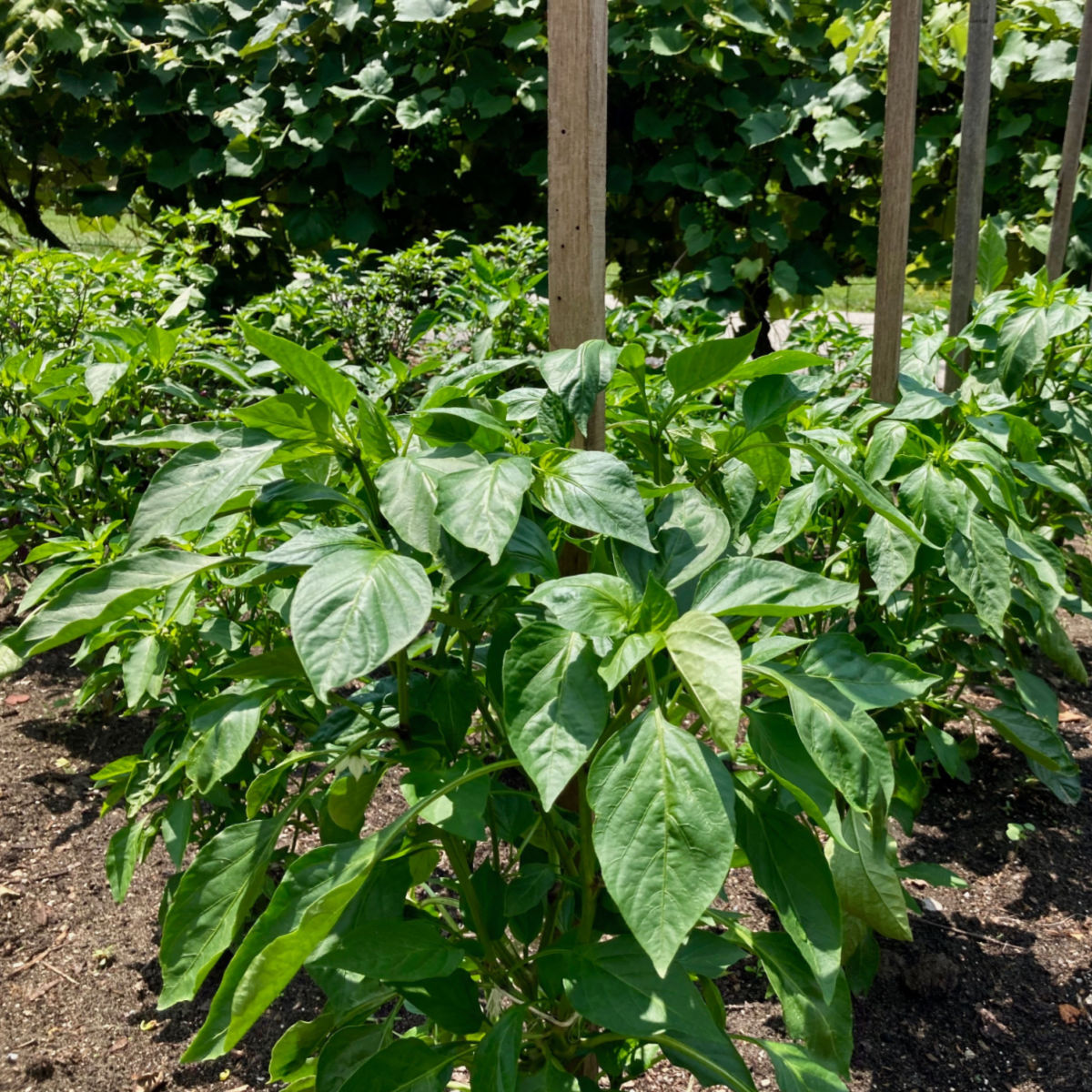Organic Vs. Synthetic Fertilizers: Which Is Best for Nurturing Healthy And Balanced Pepper Plants?
In the world of supporting healthy and balanced pepper plants, the option between artificial and natural plant foods stands as a pivotal choice with far-ranging ramifications. While both alternatives objective to offer vital nutrients to sustain plant development, the nuances of their effect on the dirt, plant health, and the setting spark a debate that mirrors throughout the horticulture neighborhood. Comprehending the distinctive benefits and potential pitfalls of each plant food kind is essential for pepper cultivators looking for to maximize their yields while keeping an eco-conscious and lasting method.
Benefits of Organic Fertilizers
Organic fertilizers offer a lasting and environmentally-friendly technique to nourishing pepper plants, offering essential nutrients without making use of synthetic chemicals. These all-natural plant foods are stemmed from organic resources such as garden compost, manure, bone dish, and algae, promoting dirt wellness and biodiversity. Unlike artificial fertilizers, natural options release nutrients gradually, guaranteeing a consistent and balanced supply for pepper plants to flourish.
One considerable advantage of natural plant foods is their capacity to improve soil framework and water retention. By boosting soil health, natural plant foods promote advantageous microbial task, which helps in nutrient uptake by pepper plants. Furthermore, natural plant foods lower the threat of chemical run-off, safeguarding water resources from contamination and guarding the environment.
Additionally, organic plant foods add to lasting soil fertility by advertising the growth of useful soil microorganisms. These organisms aid break down raw material, launching nutrients in a kind that is quickly accessible to pepper plants. best fertilizers for peppers. By fostering a healthy and balanced soil ecological community, organic fertilizers sustain sustainable pepper growing practices that profit both plants and the setting
Downsides of Artificial Plant Foods
Artificial fertilizers, in comparison to their organic equivalents, present different negative aspects when used to nurture pepper plants, affecting both plant health and wellness and environmental sustainability. One major downside of synthetic fertilizers is their propensity to seep nutrients from the dirt rapidly. This rapid leaching can lead to vitamins and mineral inequalities in the soil, triggering plants to struggle with toxicities or shortages. In addition, synthetic fertilizers can hurt advantageous dirt microorganisms, such as earthworms and valuable bacteria, interfering with the soil ecological community's equilibrium.
Furthermore, the overuse of synthetic fertilizers can add to water contamination. Excess plant foods not soaked up by plants can remove into water bodies, bring about eutrophication, where algae blooms deplete oxygen degrees in the water, harming aquatic life. Artificial fertilizers are generally obtained from non-renewable sources, such as fossil fuels, adding to carbon exhausts and ecological degradation during their manufacturing.
Nutrient Absorption Contrast
Effective nutrient absorption plays a vital function in the overall health and wellness and development of pepper plants. When contrasting synthetic and natural plant foods in terms of nutrient absorption, organic plant foods have the benefit of supplying an extra balanced and slow-release source of nutrients (best fertilizers for peppers). Organic plant foods contain a selection of macro and micronutrients that are not just beneficial for the plants however likewise advertise healthy soil microbial activity, which aids in nutrient uptake. On the other hand, synthetic plant foods commonly provide a quick launch of nutrients, which can bring about leaching and runoff, resulting in reduced nutrient absorption prices by the plants.
Moreover, natural fertilizers why not try this out improve soil structure and water retention capacity, allowing pepper plants to gain access to nutrients a lot more successfully. This better soil quality assists in root development, making it possible for better nutrient absorption. Artificial plant foods, although at first improving plant growth as a result of their high nutrient focus, may hinder long-term nutrient absorption by derogatory dirt health and wellness gradually.
Environmental Influence Factors To Consider

On the other hand, synthetic plant foods, although typically more instantly readily available and focused to plants, can have damaging effects on the atmosphere if not applied effectively (best fertilizers for peppers). Their manufacturing needs high energy inputs, leading to greenhouse gas discharges and adding to climate adjustment. The runoff of excess artificial plant foods can contaminate water resources, leading to eutrophication and harming marine ecological communities.
Ideal Fertilizer Practices for Peppers
To accomplish this, it is essential to comply with finest plant food practices tailored to the specific requirements of pepper plants. One important practice is to perform a dirt examination before using any plant foods.
An additional vital practice is to feed pepper plants at the best time. Typically, peppers take advantage of getting plant food at planting and after that again when they start to blossom. Over-fertilizing can result in nutrient discrepancies and hurt the plants, so it is crucial to adhere to suggested application prices.
Additionally, choosing a balanced fertilizer with an NPK proportion that matches pepper plants' demands is basic. Inevitably, integrating artificial and natural plant foods sensibly can assist support healthy pepper plants while reducing environmental effect.
Final Thought

Organic plant foods use an environmentally-friendly and sustainable strategy to go to this website beneficial pepper plants, giving vital nutrients without the usage of artificial chemicals. Unlike synthetic plant foods, natural choices release nutrients gradually, making sure a balanced and constant supply for pepper plants to prosper.
Synthetic fertilizers, in comparison to their natural counterparts, position numerous disadvantages when made use of to nourish pepper plants, affecting both plant health and ecological sustainability. When contrasting natural and artificial fertilizers in terms of nutrient absorption, natural fertilizers have the advantage of supplying a much more balanced and slow-release source of nutrients.In addition, organic plant foods boost soil structure and water retention ability, allowing pepper plants to accessibility nutrients a lot more successfully.